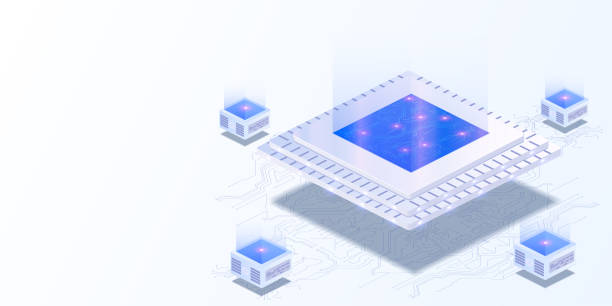In recent years, synthetic meat production has emerged as a groundbreaking innovation in the food technology sector. By offering a sustainable alternative to traditional meat, synthetic meat addresses critical issues related to environmental sustainability, animal welfare, and food security. Loans dedicated to funding synthetic meat production are playing a pivotal role in shaping this industry, enabling the development and scaling of technologies that could revolutionize how we produce and consume food. Let’s explore how these loans are influencing the future of food technology.
Table of Contents
ToggleUnderstanding Synthetic Meat Production
Synthetic meat, also known as cultured or lab-grown meat, is produced through cellular agriculture. Unlike conventional meat production, which involves raising and slaughtering animals, synthetic meat is created by culturing animal cells in a controlled environment. This innovative process involves several key components:
1. Cell Culturing Technology
- Cell Selection: The process begins with selecting specific animal cells, usually muscle cells, which are then cultivated in a nutrient-rich medium.
- Bioreactors: These cells are grown in bioreactors, which provide the optimal conditions for cell growth and multiplication, ultimately forming muscle tissue that mimics traditional meat.
2. Scalability and Cost Reduction
- Scaling Up: As the technology advances, scaling up production to meet global demand becomes a focus. Achieving economies of scale is essential for making synthetic meat affordable and widely available.
- Cost Efficiency: Reducing production costs is a significant challenge. Advances in bioreactor technology, cell culture media, and process optimization are crucial for achieving cost-effective production.
The Role of Loans in Advancing Synthetic Meat Production
Loans are instrumental in fueling the growth of synthetic meat production by providing the necessary capital for research, development, and commercialization. Here’s how these financial resources are shaping the industry:
1. Funding Research and Development
- Innovative Technologies: Loans help finance research into new cell culturing techniques, bioreactor designs, and nutrient media. These innovations are crucial for improving the efficiency, taste, and texture of synthetic meat.
- Testing and Trials: Financial support allows companies to conduct extensive testing and trials to ensure that synthetic meat meets safety standards and regulatory requirements.
2. Scaling Up Production Facilities
- Infrastructure Investment: Loans facilitate the construction and expansion of production facilities, including state-of-the-art bioreactors and laboratory equipment. Scaling up production capabilities is essential for meeting market demands.
- Operational Costs: Ongoing operational costs, such as raw materials, labor, and maintenance, are covered by loans, allowing companies to focus on optimizing their production processes.
Impact on Food Technology and Sustainability
The rise of synthetic meat production is poised to make a significant impact on food technology and sustainability:
1. Environmental Benefits
- Reduced Greenhouse Gas Emissions: Synthetic meat production generates fewer greenhouse gases compared to traditional livestock farming, contributing to a reduction in the carbon footprint of meat production.
- Conservation of Resources: Cultured meat requires less land and water than conventional meat production, helping to conserve natural resources and reduce deforestation.
2. Ethical and Health Considerations
- Animal Welfare: Synthetic meat eliminates the need for animal slaughter, addressing ethical concerns related to animal welfare and cruelty.
- Health Benefits: Cultured meat has the potential to be healthier, as it can be engineered to have lower fat content and reduced risk of contamination with pathogens.
Challenges and Opportunities
While loans are driving advancements in synthetic meat production, several challenges and opportunities remain:
1. Regulatory and Market Acceptance
- Regulatory Hurdles: Navigating regulatory frameworks and obtaining approval from food safety authorities can be complex and time-consuming. Securing loans helps companies manage these challenges while ensuring compliance.
- Consumer Acceptance: Educating consumers and addressing potential concerns about synthetic meat is essential for widespread market acceptance. Loans can support marketing and outreach efforts to build consumer trust.
2. Technological Advancements
- Continuous Innovation: The field of synthetic meat production is rapidly evolving. Ongoing investment is needed to support research into new technologies and improve production processes.
- Competitive Landscape: As more companies enter the market, competition will drive innovation and cost reductions. Loans will continue to play a crucial role in enabling companies to stay competitive and advance their technologies.
The Future of Synthetic Meat and Financial Support
The future of synthetic meat production holds exciting potential for transforming the global food system. Loans dedicated to this sector are crucial for driving innovation, scaling up production, and addressing the challenges of cost and market acceptance. As technology advances and production becomes more cost-effective, synthetic meat could become a mainstream food option, offering sustainable and ethical choices for consumers worldwide.
Conclusion: A Sustainable Investment in Food Technology
Loans for synthetic meat production are not just a financial resource—they are a catalyst for change in the food technology sector. By supporting research, scaling up production, and addressing sustainability challenges, these loans are paving the way for a more sustainable and ethical future in food production. As the industry continues to grow and evolve, the impact of these investments will likely extend far beyond the realm of synthetic meat, influencing broader trends in food technology and sustainability. Embracing this innovative approach is a step toward a future where our food systems are both environmentally friendly and aligned with ethical standards.

